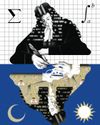
Martha assumed it was called that because mothers were more likely to move in with daughters, and men were more likely to own houses. She wasn’t married, though, and her sister, Molly, who was, didn’t have a motherin-law apartment in her garage in Los Angeles, where real estate was much more expensive than it was in Baltimore. Also, Molly was busy with her children and hadn’t spoken to their mother in more than a year.
“Let’s take a break,” Martha told her mother.
“You rest here.”
“What are you going to do?”
“I have to clean out the fridge.”
In the past, that kind of excuse would never have fooled her mother. Judy had been an expert liar and always recognized her daughters’ amateur attempts for what they were. She would have watched from the window and seen that, instead of crossing to the house, Martha had sat down on the garage step and started looking at her phone. Someone Martha knew had read forty biographies and taken a picture of the stack; someone else had hiked to a hot spring in Iceland.
The house was small, but it included this unusual converted garage. The broker had made much of the potential for extra income, and for a while Martha had rented it to a Croatian couple who were grad students in design. The design students were extremely neat and almost never home, and once left a surprisingly delicious loaf of gluten-free zucchini bread in her mailbox. It had been hard to ask them to leave, when she and Molly had decided that their mother would move in with her.
Bu hikaye The New Yorker dergisinin August 05, 2024 sayısından alınmıştır.
Start your 7-day Magzter GOLD free trial to access thousands of curated premium stories, and 9,000+ magazines and newspapers.
Already a subscriber ? Giriş Yap
Bu hikaye The New Yorker dergisinin August 05, 2024 sayısından alınmıştır.
Start your 7-day Magzter GOLD free trial to access thousands of curated premium stories, and 9,000+ magazines and newspapers.
Already a subscriber? Giriş Yap

MEAN TIME
“Hard Truths.”

ENLIGHTEN ME
The secret beauty of mandalas.

THE BEST OF THEM
His was a genius for the ages. Will Gottfried Leibniz ever get his due?

DEATH CULT
Yukio Mishima’ tortured obsessions were his making—and his unmaking.

Prophecy
The night of Dev’s twenty-second birthday, he was invited to sit with the elders after dinner.

A TALE OF TWO DISTRICTS
Lauren Boebert and Colorado’s red-blue divide.

THE TIKTOK TRAIL
Andean migrants draw others to the U.S. with videos depicting themselves as living the American Dream.

LOVE AND THEFT
Did a best-selling romantasy novelist steal another writer's story?

OUR NEW TWO-FACTOR AUTHENTICATION SYSTEM
Our two-factor authentication system is expanding because text messages and e-mailed codes are becoming less secure. Also, we’re committed to making sure your log-in process is more of a hassle than it needs to be.

STILL PROCESSING
Why is the American diet so deadly?